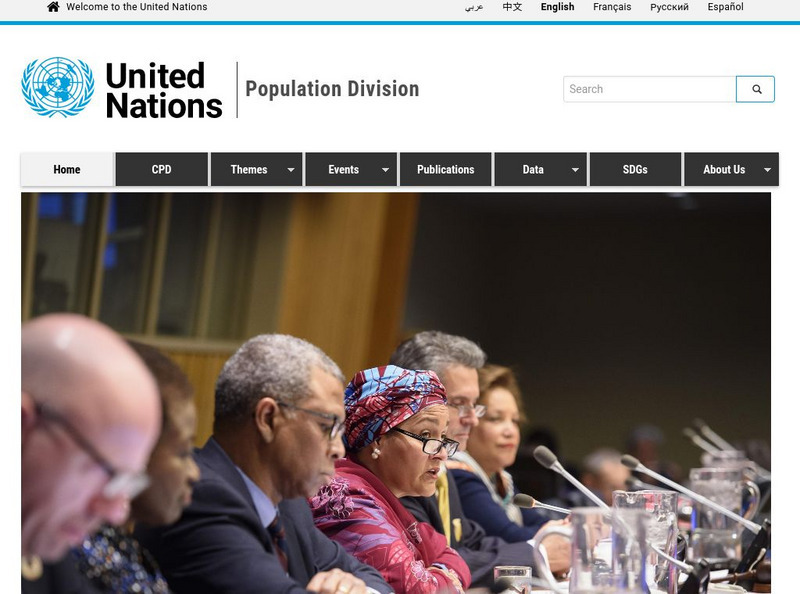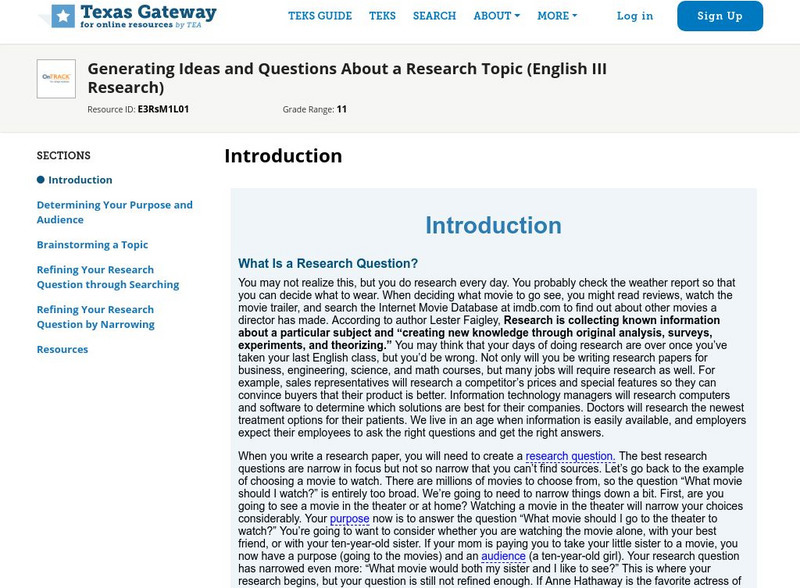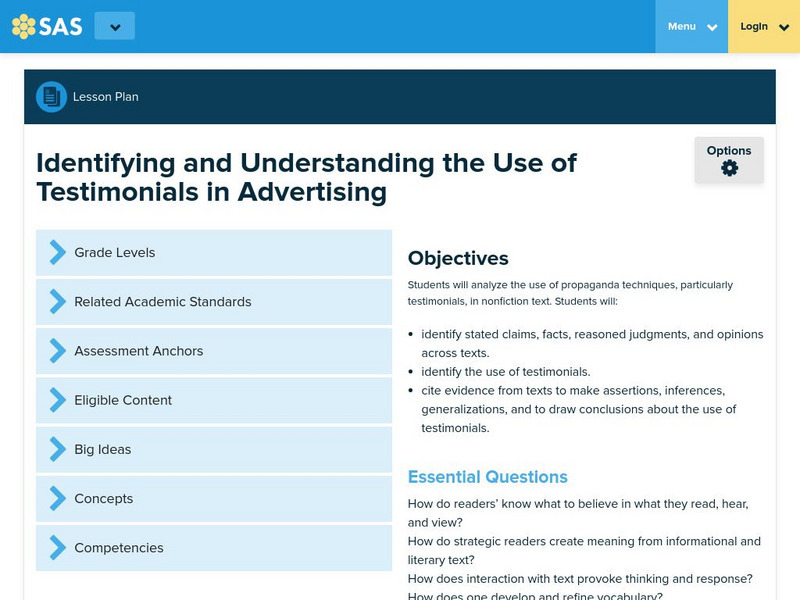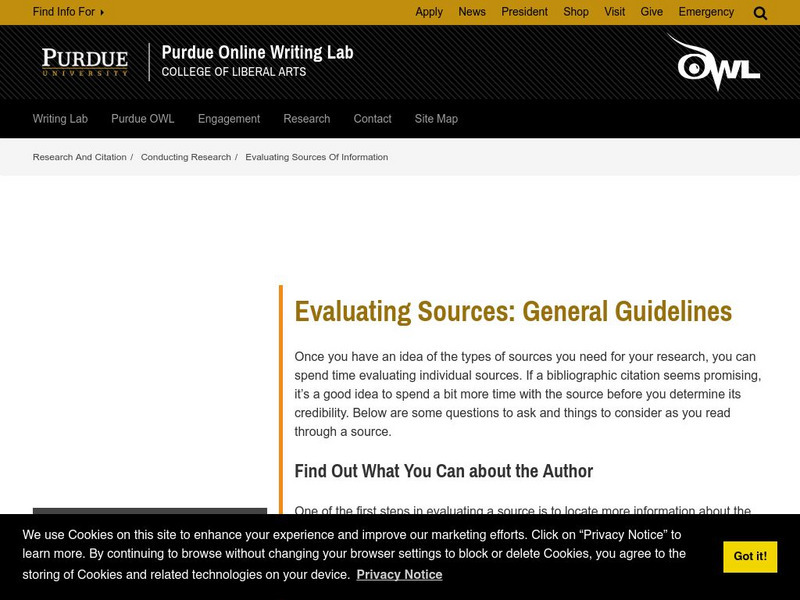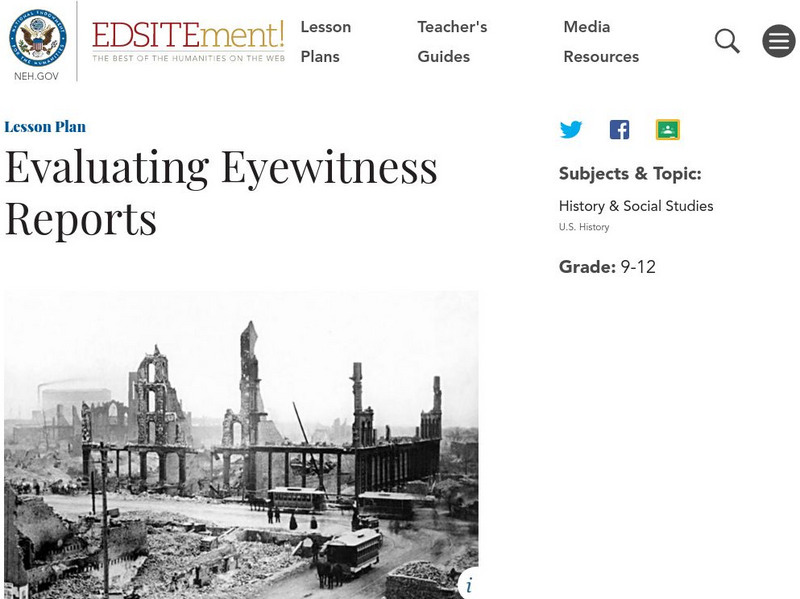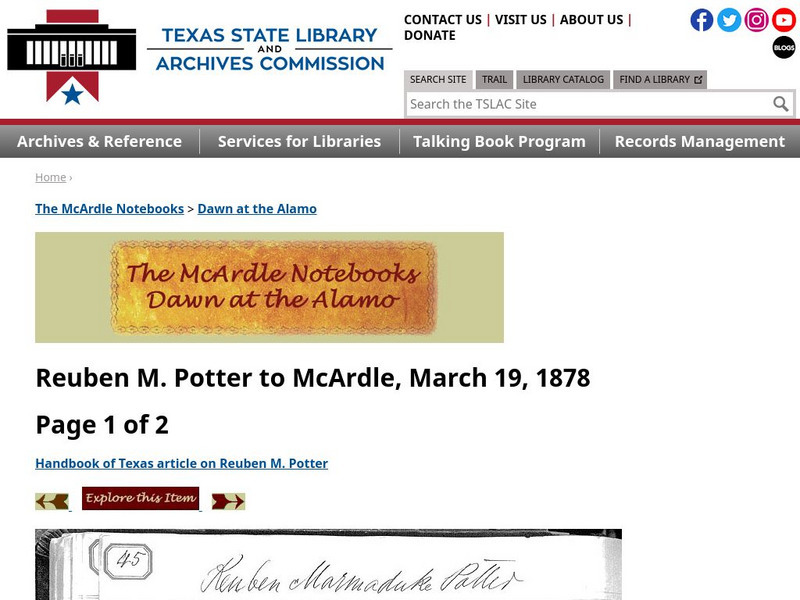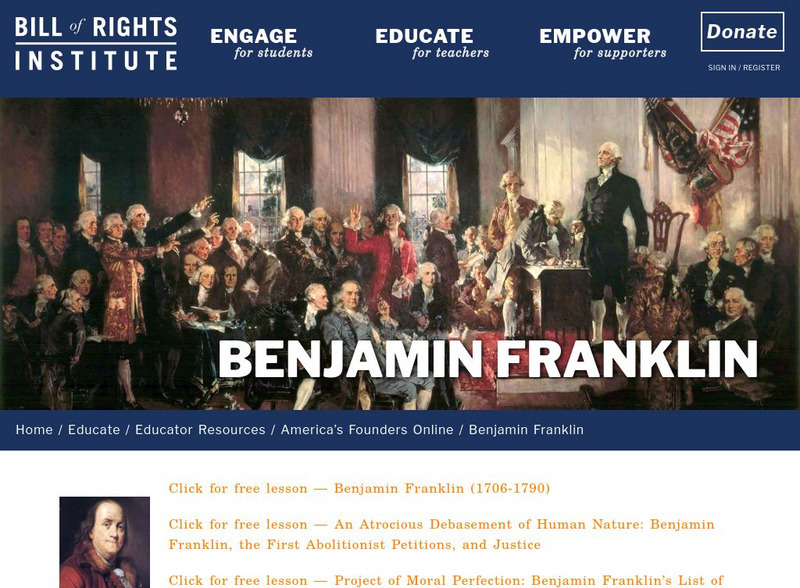Hi, what do you want to do?
Other
National Security Agency: A Priceless Advantage [Pdf]
A report written by the NSA on the U.S. Navy Communications Intelligence and the Battles of Coral Sea, Midway, and the Aleutians in the spring of 1942. Very credible and very complete. (Third edition)
Texas Education Agency
Texas Gateway: Distinguish Between Summary and Critique (English Ii Reading)
This lesson will focus on summary and critique separately so that you can distinguish between the two. You will learn how to summarize a text and how to distinguish between essential and nonessential information when summarizing. You...
United Nations
United Nations: Department of Economic and Social Affairs: Population
An excellent source for credible population data. Contains links to the world population data and demographic trends and themes.
Stanford University
Sheg: Document Based History: Reading Like a Historian: Evaluating Sources
[Free Registration/Login Required] Are all historical sources equally trustworthy? How might the reliability of a historical document be affected by the circumstances under which it was created? In this activity, students sharpen their...
Stanford University
Sheg: Document Based History: Reading Like a Historian:sourcing Classroom Poster
[Free Registration/Login Required] Sourcing asks students to consider who wrote a document as well as the circumstances of its creation. Who authored a given document? When? For what purpose? This poster reminds students before reading a...
Texas Education Agency
Texas Gateway: Generating Ideas and Questions About a Research Topic
This lesson focuses on creating a research question including determining the purpose and audience, brainstorming a topic, researching the question for information, and refining and narrowing the question. W.9-10.7 Research....
Other
Media Education Lab: My Pop Studio
[Free Registration/Login Required] Get ready to go behind-the-scenes of the television you watch, magazines you read, music you listen to, and websites you visit! The 'studios' let you.. Create, Comment, Control. Targeted at girls, the...
Virtual Salt
Virtual Salt: Ideas for Enhancing Oral Reports
A helpful review of important parts of your report and ways to strengthen it. SL.9-10.4 Presentation
Other
Pde: Sas: Identifying and Understanding Use of Testimonials in Advertising
In this activity, 8th graders analyze and compare the propaganda techniques used in informational texts, with a particular focus on the use of testimonials. Includes links to recommended resources, scaffolding suggestions, and an...
Other
Kathy Schrock's Home Page: Abc's of Website Evaluation [Pdf]
Noted technology educator Kathy Schrock provides an alphabetical list of qualities to evaluate in judging websites. She provides example websites to look at for each quality. In addition, she gives a list of websites to use when...
International Reading Association
Reading Online: Classroom Strategies for Exploring Authenticity in the Media
Four innovative classroom activities that actively engage students in analyzing and criticizing media messages. SL.11-12.2 Eval&Integrate sources
University of California
Uc Berkeley Library: Critical Evaluation of Resources
Questions to ask yourself when determining if a source is reliable. Discusses difference between primary and secondary source. List of reference sources and links to other sites that teach you how to evaluate sources....
Other
Seymour Community School District: 10 Rhetorical Devices [Pdf]
A slideshow discussing ten rhetorical devices, with links to examples, in-depth information, and a video. Covers logos, ethos, pathos, analogy, metaphor, irony, personification, rhetorical question, tricolon, and maxims. Presents a...
Media Smarts
Media Smarts: How to Recognize False Content Online: The New 5 Ws [Pdf]
A tip sheet to help both students and adults learn how to test online content for validity.
Online Writing Lab at Purdue University
Purdue University Owl: Evaluating Sources: General Guidelines
This entry focuses on evaluating your sources while reading them, giving suggestions on what to look for when reading.
PBS
Pbs Learning Media: Common Sense Education: Identifying High Quality Sites
Learn how to "test before you trust" the sites and information found on the Web in this lesson plan and student handout from Common Sense Education. Assessing what you find on the Web is an essential skill for today's students. Use this...
PBS
Pbs Learning Media: News and Media Literacy
This collection, which includes videos, blog articles, student handouts, lesson plans, and tip sheets for families, helps students identify, analyze, and investigate the news and information they get from online sources. Media literacy...
PBS
Pbs Learning Media: Virtual Professional Learning Series
Our Virtual Professional Learning Series is created for teachers-by teachers-to bring together content experts and educators from all backgrounds. With an emphasis on fun, engaging, accessible, and free tools for classrooms, these...
National Endowment for the Humanities
Neh: Edsit Ement: Evaluating Eyewitness Reports
In this lesson, students practice working with primary documents by comparing accounts of the Chicago Fire and testing the credibility of a Civil War diary.
Vroma Project
V Roma Project: Caligula: Historical Background
This resource presents a biography of Gaius, known as Caligula, the third emperor of Rome. Written in timeline form, it gives literary and artistic evidence about his life. It stresses the lack of credible information about his life and...
Lumen Learning
Lumen: Boundless Communications: Introduction
In this section of a textbook, students learn different techniques for writing an introduction. It provides links to information on the following topics: the role of an introduction, getting attention and interest, establishing...
Other
Walt's Navigating the Net Forum: Evaluating Quality
This article helps searchers develop evaluation skills in judging information and helps web content developers increase the credibility of their materials for those looking for quality on the net.
Texas State Library and Archives Commission
Texas State Library and Archives Commission: Dawn at the Alamo: Reuben M. Potter to Mc Ardle
Read a letter from Reuben M. Potter to "Dawn at the Alamo" artist, Henry McArdle, in which Potter talks about the credibility of Dickinson's account of the Alamo, among other things. This site includes images of the actual letter and...
Bill of Rights Institute
Bill of Rights Institute: Benjamin Franklin
Although he was the old sage of the American Revolution and the Founding generation, Benjamin Franklin's considerable work in the areas of journalism, science, and invention often obscure his many contributions to the creation of the...
Other popular searches
- Source Credibility
- Website Credibility
- Internet Credibility
- Internet Website Credibility
- Credibility of Websites
- Credibility of Web Sites
- Trust Credibility
- Periodical Credibility
- Web Site Credibility
- Credibility of Character
- Internet Source Credibility
- Article Source Credibility





![National Security Agency: A Priceless Advantage [Pdf] Primary National Security Agency: A Priceless Advantage [Pdf] Primary](https://static.lp.lexp.cloud/images/attachment_defaults/resource/large/FPO-knovation.png)

